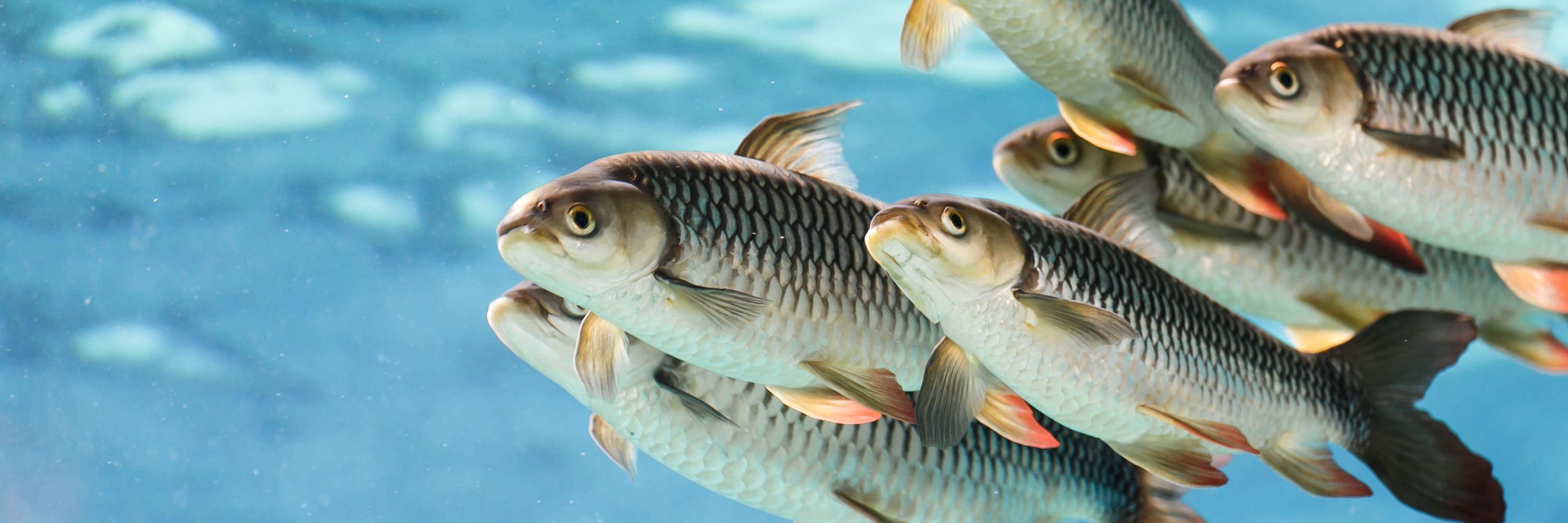
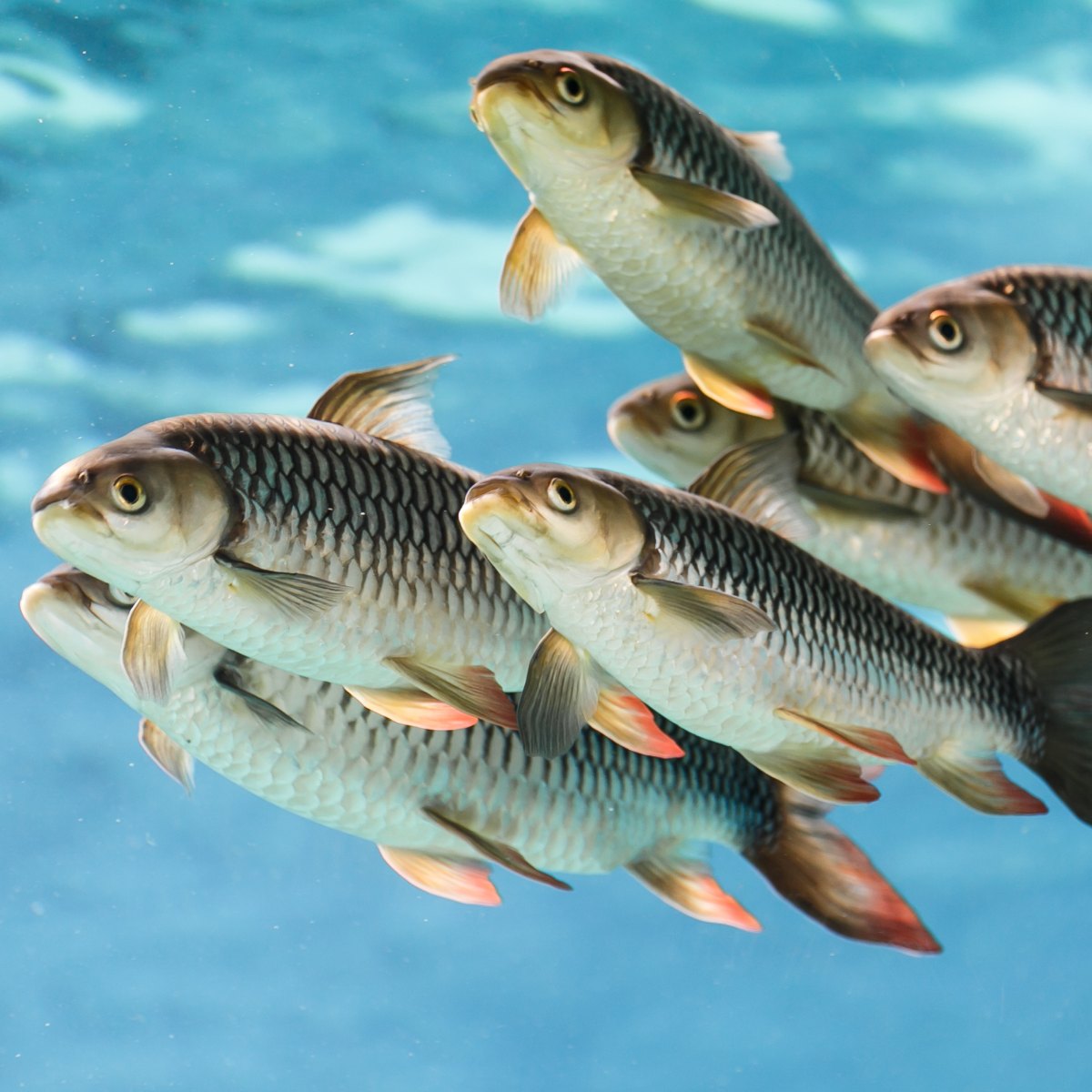
How We Are Working To Achieve Stronger Legal Protections For Fish

Facts About Fish
People often find it difficult to empathise with fish, unlike some other animals.
They have several different traits to land animals, including humans. They have scales instead of skin or fur, their eyes are on the sides of their heads rather than front-facing like ours, and we often don’t notice their expressions as we would with, for instance, cows.
However, this does not make them less intelligent or less able to feel emotions than other animals.
Over the past years, more and more scientists have started to carefully study fish to better understand them and their social interactions. The findings are extraordinary and have massively changed how many people view fish.
In addition, there is now a clear agreement among the scientific community that fish feel pain and can suffer.
Below are some of the most interesting facts about fish.
1. There Are Over 30,000 Species of Fish
To date over 33,000 species of fish have been discovered. This is more than all mammals, reptiles and amphibians combined!
However, with 80% of the ocean remaining unexplored, there are no doubt countless more species out there which we don’t know about.
Each species is unique and has its own individual needs. For example, some species live in cold climates, while others prefer warmer waters. Some are colourful, some are monochromatic. Some are carnivorous, some feed on plankton.
In 2018, over 600 aquatic organisms were farmed across the world. Fish species that are commonly farmed include: Salmon, Trout, Halibut, Kingfish, Prawns and Carp.
Fish farming is responsible for the death of more than 80 million tonnes of fish every year. A number so big that it’s measured in weight instead of individuals.
2. Fish Talk To Each Other
Fish are social animals and often live in big groups. They communicate with each other using acoustic sounds, which may differ depending on the information they need to communicate.
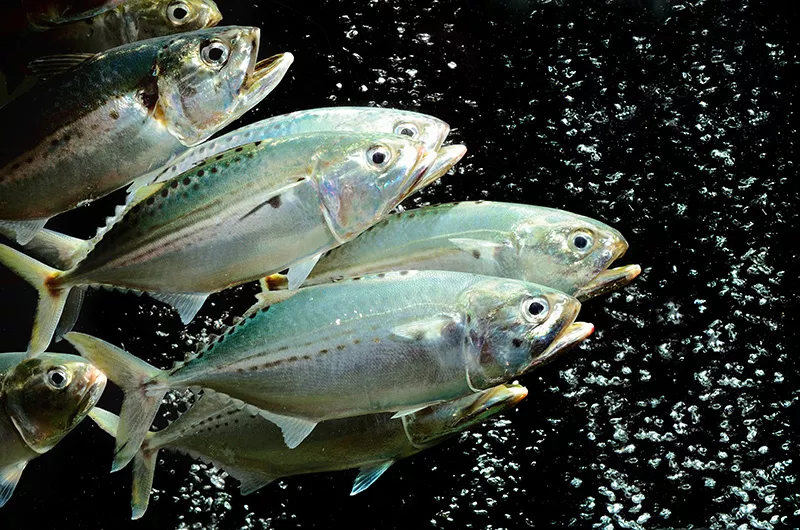
3. Fish Can Learn
According to a study, fish are able to remember positive and negative outcomes and adjust their future behaviour accordingly.
4. Fish Migrate
Just like whales, some species of fish migrate too. They do it for various reasons, but mainly to get to habitats where they can reproduce, feed, find shelter and escape extreme temperatures or water flows.
The Atlantic salmon, for example, migrates 6,000 miles annually to return to the rivers where they were born to deposit their eggs.
In factory farms, fish are confined in limited space and can only swim in circles over and over again.
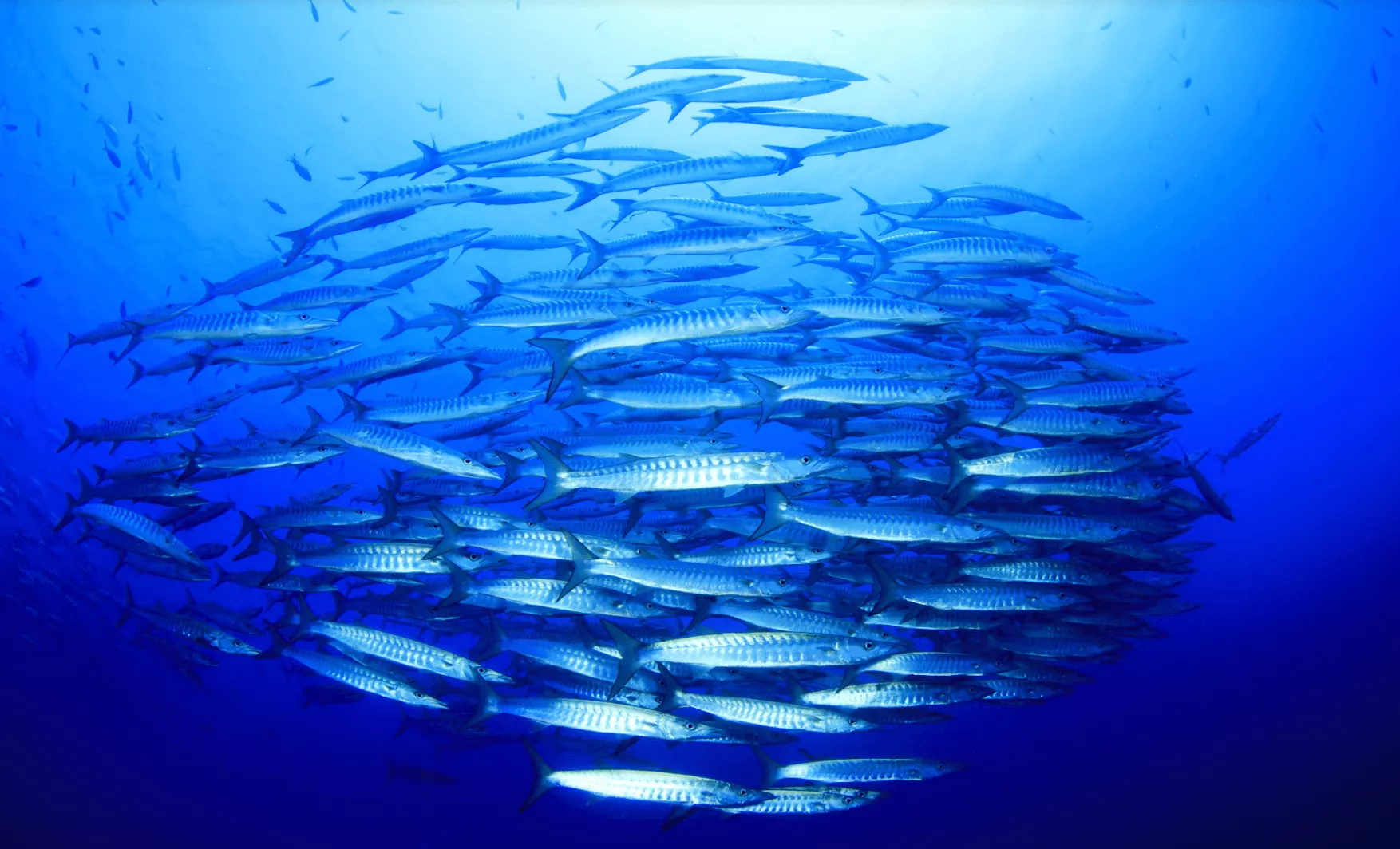
5. Fish Feel Pain
Over the past years, several fish biologists around the world have produced substantial evidence that, just like mammals and birds, fish also experience conscious pain.
In fact, fish have pain receptors which function similarly to ours. They detect potential harm, such as high temperatures, intense pressure, and chemicals.
Fish in factory farms are killed in various ways: by suffocation out of water, exposure to carbon dioxide, exposure to very low temperatures on an ice bed, or bleeding without stunning.
These procedures take several minutes to induce insensibility and are extremely cruel, causing prolonged suffering to fish.
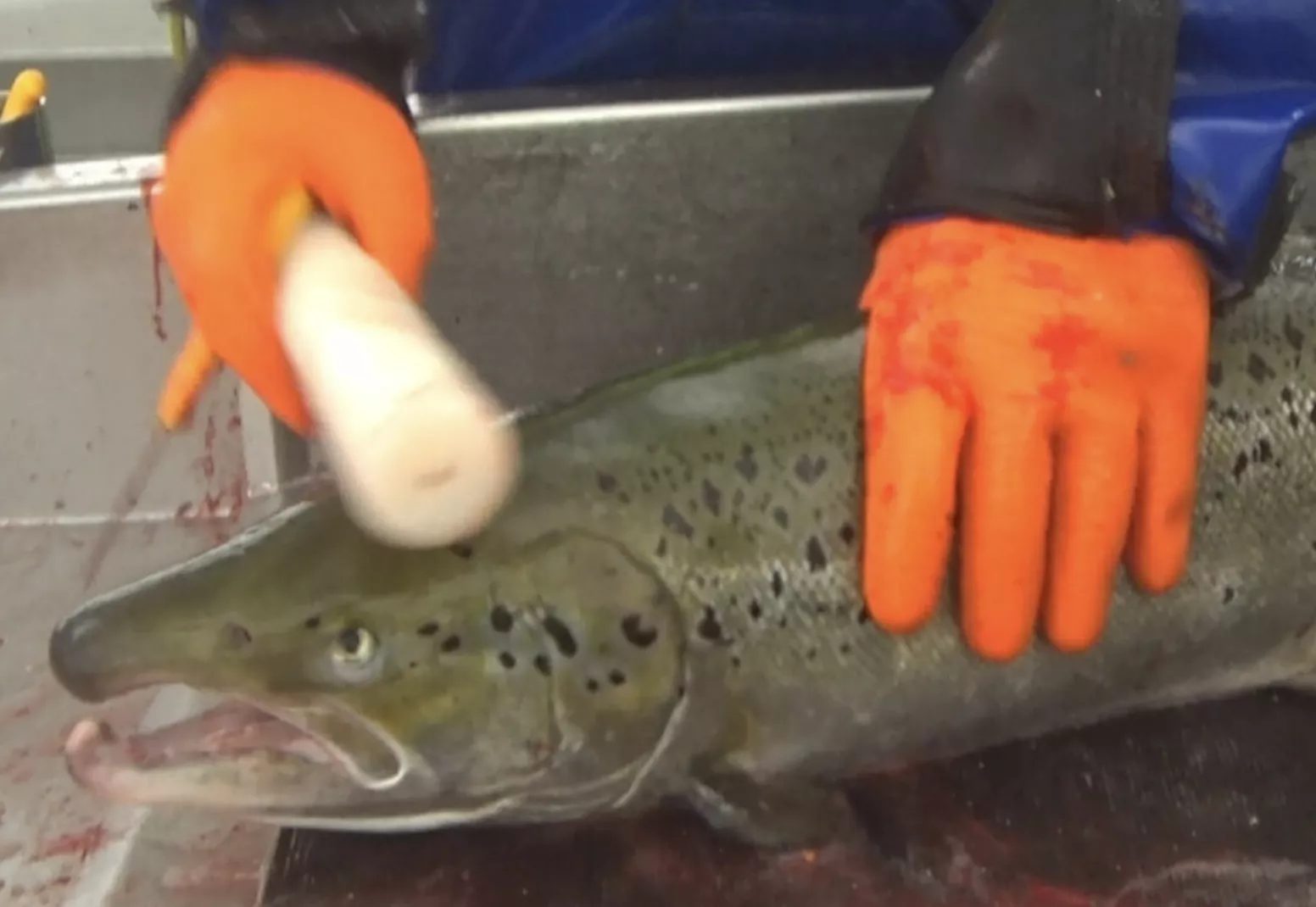
To find out more interesting facts about fish, watch our Q&A with leading aquatic animal law experts, Professor Kathy Hessler and Amy P Wilson.
Are Fish Protected By The Law?
With all of this knowledge available about fish, how has the legal protections of these fascinating animals been impacted?
In the UK, up to 77 million fish are farmed and killed each year. That’s approximately 8,790 per hour.
But despite these shocking statistics, the legal protection of these intelligent animals seems not to be a priority for the UK Government.
Although there is clear scientific evidence that fish feel pain and can suffer just like other animals, farmed land animals receive more specific and detailed legal protections than fish currently do.
According to the Animal Welfare Act (2006), fish are protected against ‘unnecessary suffering’ and farmers are required to ensure that their ‘needs are met’.
Even though this may at first appear as though UK legislation is working to protect fish, the legislation fails to provide specific obligations, leaving room for interpretation.
These specific obligations are only detailed in the legislation to protect ‘farmed animals’. A definition that, across the UK, currently excludes fish.
Similarly, although fish are included within the general protections under The Welfare of Farmed Animals at the Time of Killing (WATOK) Regulations – which means that they ‘should be spared any avoidable pain, distress or suffering during their killing and related operations’ – they are not included in the definition of ‘animal’ for inclusion in more detailed WATOK provisions.
Therefore, there are currently no specific requirements as to how they should be delivered, held, stunned or killed.
Farmed Fish: Animal Equality’s Investigation
In February 2021, Animal Equality released a first-of-its-kind investigation into a Scottish salmon slaughterhouse operated by The Scottish Salmon Company.
Our footage revealed salmon showing clear signs of prolonged suffering during the final moments of their short lives. Despite a stunning device being in place in the facility, significant numbers of salmon showed signs of consciousness at the time of the killing, as verified by world-leading aquatic animal scientists and veterinarians.
This shows that without clear and informed legal guidance, even where equipment aiming to improve the welfare of animals is in place, there is a high risk that it may not be used correctly, resulting in even more pain and distress to the animals before they are rendered unconscious.
While stunning is not explicitly stated as a mandatory requirement in legal guidance for fish, in order to abide by the Welfare At Time of Killing Regulation and to spare any avoidable pain, distress or suffering during their killing and related operations, stunning is absolutely crucial.
Farmed Fish: Lack of Enforcement
In 2021, the Government admitted that there are no routine checkups on fish welfare at slaughter. Following Animal Equality’s investigation, it committed to changing this. However fish are still left vulnerable to abuse.
Had Animal Equality not carried out an investigation into the industry, I very much doubt the suffering of these particular aquatic animals would have ever come to light. We should not be relying on non-profits to carry out what is essentially a public service – it’s the UK Government’s duty to protect the animals killed for human consumption and, currently, it is failing to carry out this basic duty of care.
Dr Lynne Sneddon, world-renowned aquatic animal expert, University of Gothenburg
This serious lack of monitoring and enforcement is having a devastating impact on the welfare of fish.
To address this, Animal Equality is urging the Government to make inspections mandatory and to install CCTV cameras in fish slaughterhouses across the UK.
With millions of fish farmed in the UK, we cannot rely on undercover investigations to expose welfare issues that should be closely monitored in order to comply with the existing legal requirements.
Further, it is critical that the health and wellbeing of fish are given the same scrutiny and concern as that of other farmed animals. Therefore, fish should receive species-specific, meaningful provisions in UK legislation, which should include mandatory stunning.
Animal Equality has collaborated with the Conservative Animal Welfare Foundation and animal protection law firm, Advocates for Animals, to release a new report which makes the case for stronger legal protections and enforcement measures that must be made a priority to improve fish welfare.
You can view the report, including our full recommendations, here.
What Can I Do To Help Fish?
If you’d like to join us in calling for stronger legal protections for aquatic animals, please read and sign our petition below.
You can also help by leaving fish, and all animals, off your plate.
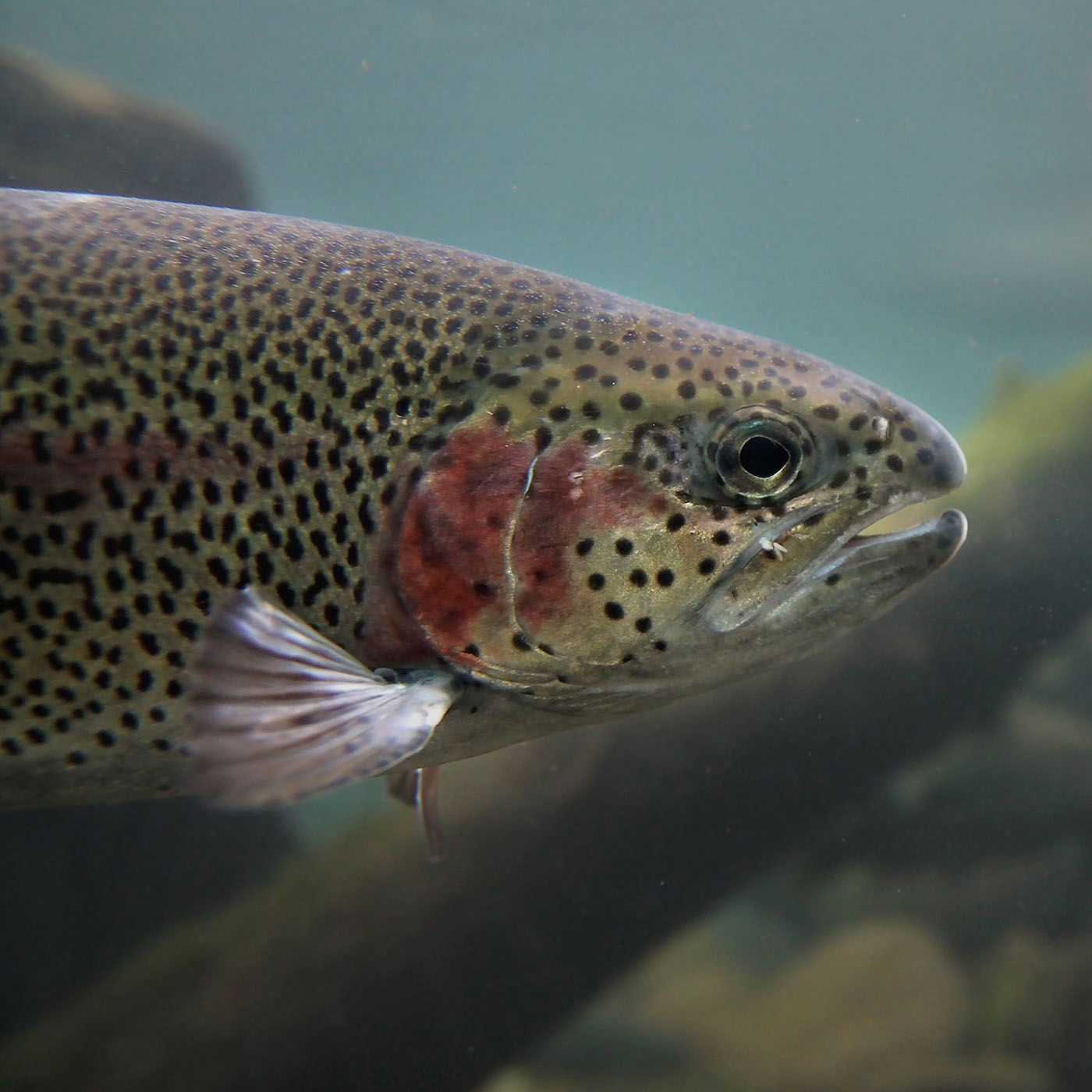
Protect Fish
Scientists confirm that fish feel pain and suffer. Protect these sensitive beings by choosing plant-based alternatives to animal food products.

